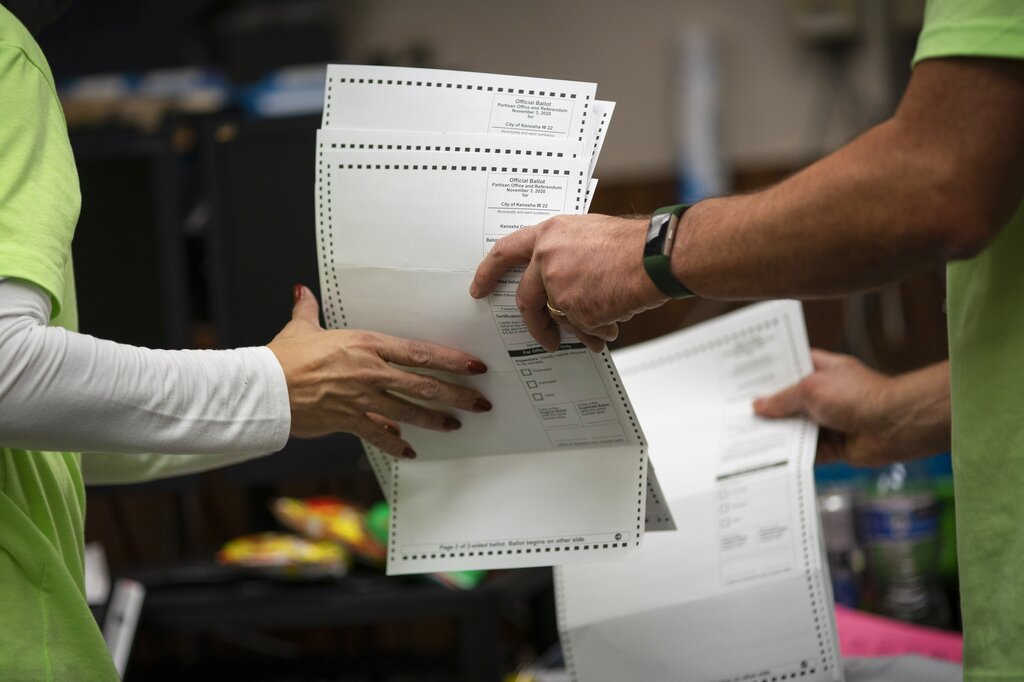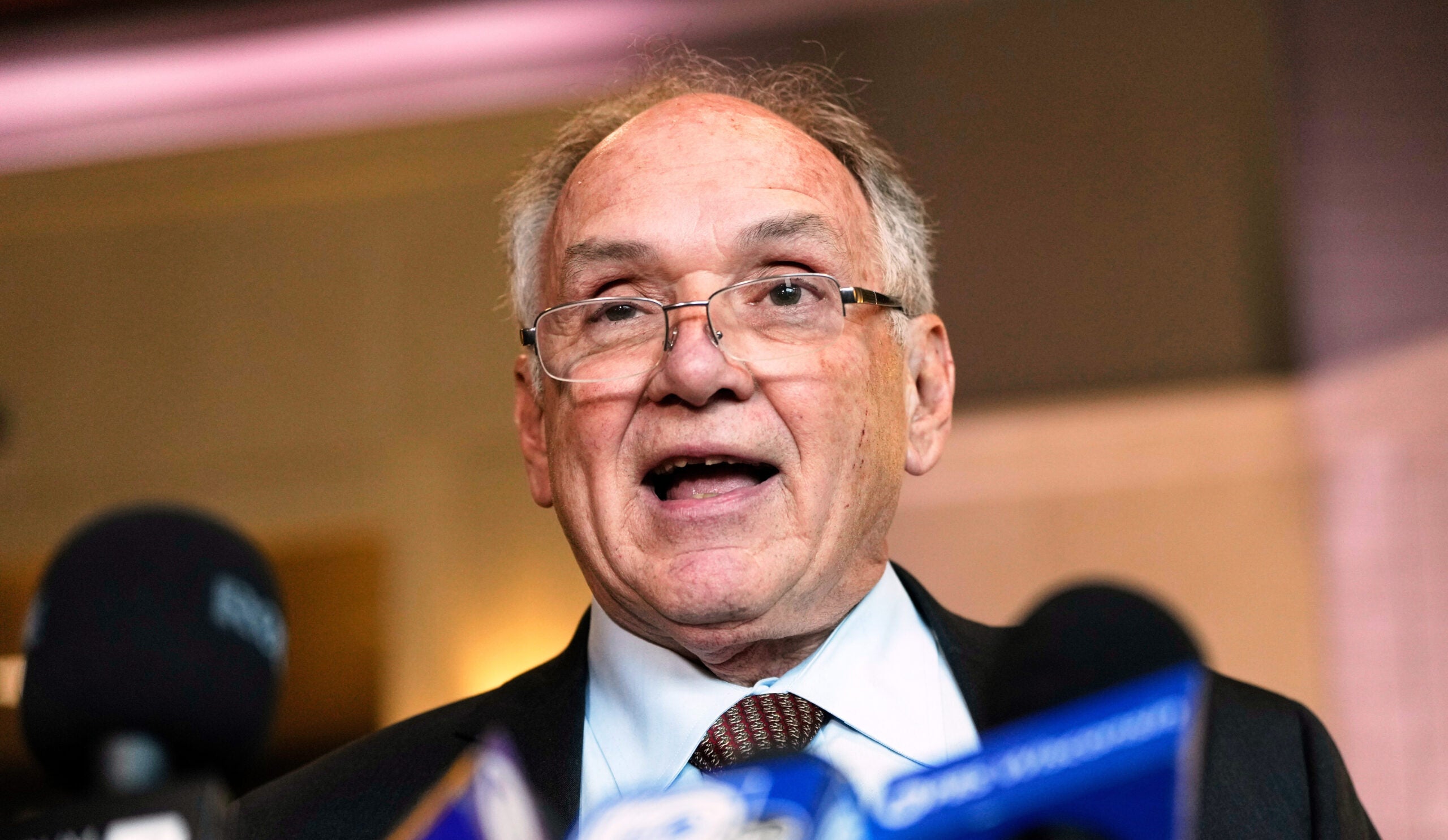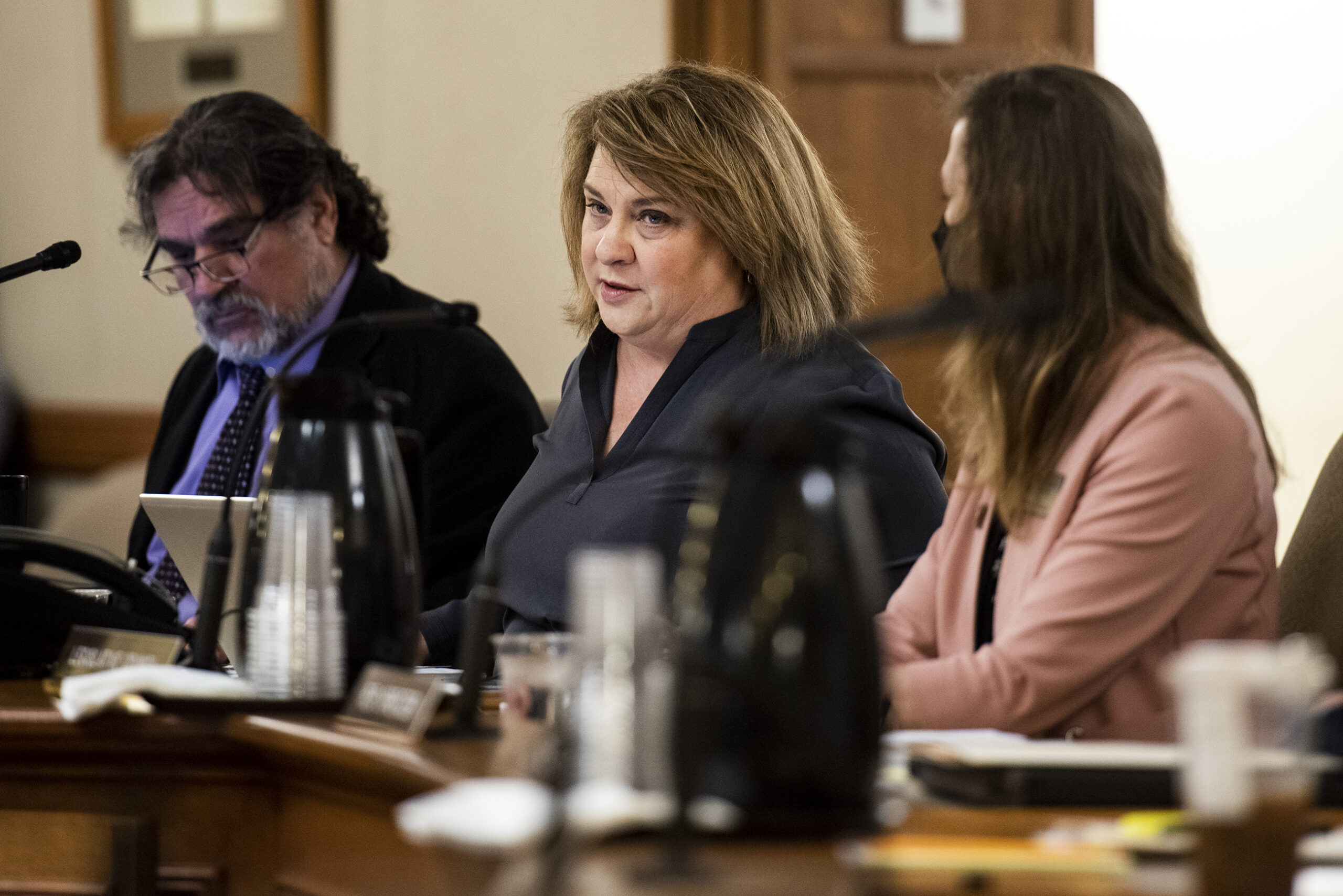Progressive groups are calling on Wisconsin Attorney General Josh Kaul to define “election workers” for the purpose of implementing a new constitutional amendment, as a conservative group argues existing law is clear enough.
In April, Wisconsin voters approved new language for the state constitution that states that “[n]o individual other than an election official designated by law may perform any task in the conduct of any primary, election, or referendum.”
On April 24, the Dane County Corporation Counsel asked the Wisconsin Department of Justice for a formal opinion interpreting the amendment, and specifically what constitutes an election-related “task” and who constitutes a lawful election official.
News with a little more humanity
WPR’s “Wisconsin Today” newsletter keeps you connected to the state you love without feeling overwhelmed. No paywall. No agenda. No corporate filter.
In the weeks since, Kaul’s office took public comment on the proposal. The state DOJ did not respond to WPR’s request for comment, and a timeline on whether Kaul will issue such an opinion is not clear.
A coalition of progressive groups, represented by the law firm Law Forward, argued that voters’ rights would be harmed if the amendment’s use of certain terms — such as “election official” or “task” — are not clarified.
“Wisconsin law already comprehensively governs who may administer an election,” said the progressive coalition in a letter dated May 14. “The new amendment should not be read to substantively alter these rules to impede the right to vote, or chill individuals or advocacy organizations from exercising their rights.”
The Law Forward letter argues that certain interpretations of the new amendment could interfere with Wisconsinites’ state and federal rights to vote by “either limiting the definition of who is an election official or … broadening the definition of what is an election ‘task’.”
That could interfere both with the administering of elections, the letter argues, including the usage of “technical experts, attorneys, and others who assist election officials in performing their duties” as well as people’s rights to “assemble and petition around elections,” such as by providing voter education or transportation to the polls.
The Law Forward letter was supported by a coalition that included Common Cause Wisconsin, Wisconsin Faith Voices for Justice, Leaders Igniting Transformation, the Wisconsin Democracy Campaign and the ACLU of Wisconsin Foundation among others.
The conservative Wisconsin Institute for Law and Liberty, or WILL, said in its own letter to the DOJ that Kaul’s office did not need to provide such an interpretation.
“The meanings of ‘election official’ and ‘task in the conduct of any primary, election, or referendum,’ are not complicated,” the WILL letter argues. The group says that those definitions are clearly laid out elsewhere in state law.
The WILL letter also argues that Dane County’s attorney was wrong to ask Kaul to issue a formal opinion.
“With all due respect to Dane County Corporation Counsel, he seems to have ignored your Office’s published criteria and asked you to give legal advice to third parties (municipal clerks) in non-specific situations and without a sufficient factual or legal background for you to render a meaningful and lawful opinion,” argued WILL, in a letter dated May 13. “He is basically asking you to anticipate potential issues and questions and write a law review article.”
The public comment period ended on May 13.
The constitutional amendment in question passed the Legislature in response to complaints that arose after some municipalities used outside consultants during the 2020 election. Although that was not a new practice, it was among several longstanding components of election administration that came under heightened scrutiny that year.
Another such practice — the use of external funding and grants to support election administration — was also made unconstitutional following the April elections.
Wisconsin Public Radio, © Copyright 2025, Board of Regents of the University of Wisconsin System and Wisconsin Educational Communications Board.







